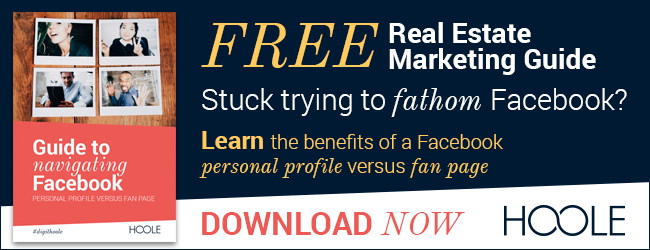If you want to build trust in your brand and make yourself look highly attractive, as the local real estate agent of choice, you need to build social proof. But what is it, and how does it work?
What is social proof?
Social proof is the psychological process of people taking their cues from others and basing their opinions and behaviour on those of their peers. It is a type of conformity and is sometimes referred to as “herd behaviour.” It may not seem relevant to real estate at first glance, but let’s take a closer look.
Social proof and social media
Social proof is particularly prevalent on social networks such as Twitter, Facebook, Instagram and YouTube, where the more followers, fans, views, likes and even comments that a person or company has, the more positively they are perceived by others.
For example, a Facebook user with several thousand followers is perceived as more trustworthy and reputable than a similar user with less than 100 followers. The idea is that the individual is wildly popular so there must be a variety of other wonderful things about them.
Get on the bandwagon
This is known as the “Halo Effect” or “Bandwagon Effect” and it results in yet more people choosing to follow them, leading to higher engagement and click-through rates. The number of followers someone has on social media is now seen as so important that “ghost followers”, people who get paid simply to increase the social proof of social media users, have become a multimillion dollar industry.

Many real estate agents now feel the need to be active on social media simply because we see our colleagues and industry peers doing it – we want to get on the bandwagon! But in order to make it work for you, you have to get to know and understand exactly how social media marketing is going to help your business. Simply having a social media presence is not enough.
Make good connections
The bandwagon effect applies just as much to your online communities as it does to you. Initially, you’ll have to take a very active role in encouraging users to follow you. As you gain more followers, you’ll suddenly find your following seems to be growing by itself. This is down to social proof – friends of your contacts will decide that if their friends are following you, then you must be someone they should connect with too. Facebook also gives them suggestions of people to follow, too!
While it’s important to aim for plenty of followers, as too few can make you look like a novice, it’s also essential to make sure you are only seeking and accepting connections with people who are within your target audience – your clients and your neighbourhood. These are the people who are actually likely to bring revenue into your business. It’s all about balancing quantity with quality.
“Make sure you are only seeking and accepting connections with people who are within your target audience.”
And if you’re tempted to buy followers – don’t. Facebook’s algorithm is designed to reward popularity. If your followers aren’t engaging with your content, your posts will be seen by fewer people, and your efforts will be wasted.
It’s not a generational thing
Some real estate agents dismiss the idea of social media marketing because many of their clients are of an older generation. They assume that only people in their 20s and 30s, or younger, are interested in Facebook, Instagram, and other platforms. In reality, even older adults are using social media today.

A 2016 social media report by Sensis revealed that 37 percent of Australians aged over 65 use Facebook more than ten times a week, and have an average of 45 contacts. Of those aged 50-64, 57 percent are on Facebook over 20 times a week. The average number of contacts for users in this age group was 129. These are unquestionably numbers worth reaching out to.
Of those Australians of all ages who use social media, 95 percent use Facebook. 31 percent are on Instagram and 24 percent are LinkedIn users. Facebook, therefore, is where your primary focus should be.
Positive social proof: reviews, testimonials and endorsements
Succeeding in real estate is all about building trust. People in your area need to perceive you as a respectable brand. They’re more likely to do this if you come recommended by others in your neighbourhood. This is one of the main advantages of social media for real estate agents – it builds your social proof by giving you reviews and client testimonials.
People are more likely to believe reviews and testimonials from third-party sites such as Google, Facebook and LinkedIn, than those on your own website. This is because you couldn’t possibly have written them yourself – they have to be uploaded by your client alone, whose picture will also appear next to what they’ve written, giving it even more credibility.
“Your social proof depends on you being seen as a trustworthy expert in your field.”
Your clients can also give you star ratings on these sites, which show up in search results alongside the search results link. In addition to making the link stand out, these also boost your social proof as a trustworthy brand, helping to increase your click-through rate.
Customer case studies and stories
You can even give yourself a legitimate dose of positive social proof by posting stories about how you have helped past clients through the home selling process and the obstacles you have enabled them to overcome. This will help other potential clients to envisage themselves going through the process with you as their agent.

Who will give you the most social proof?
Ideally, you want as many reviews as possible from people in the same demographic as your target audience. If your potential clients can see that you’ve helped people who not only live in the same area, but are also in their age range and are selling their homes for similar reasons, then they’ll be much more likely to believe you could help them, too.
It’s also important to connect with local property related businesses or services and turn them into brand ambassadors. Offer to promote content for your local mortgage broker, conveyancer, interior designer, renovation company and landscape gardener, in return for them agreeing to do the same for you. This way you’re likely to receive interest from their clients, who will view you as trustworthy because you’re being promoted by a person or brand they already trust.
Celebrity endorsements
For the ultimate boost to your online kudos, try to get an endorsement from a celebrity, key influencer or authority figure from your community. A recommendation from someone well-known and well-liked will go a long way when it comes to increasing your social proof. If you’re short on celebrities where you live, don’t worry – a politician, high-profile executive or even a popular school principal will still carry plenty of weight with the people in your neighbourhood.
Awards, badges and media mentions
Your social proof will also be increased if you are recognised as a trusted voice within your industry. If you are an awarded sales agent in your brand network, you should include the award icon or emblem on your website and upload it to your social media pages.
Likewise, people trust figures who are quoted as experts in the media. If you’ve ever been interviewed about an interesting or amazing property you’ve sold, or have been quoted as a thought leader in the real estate industry, you should include links to the articles across all your profiles and on your website.
What information should you provide?
Your social proof depends on you being seen as a trustworthy expert in your field. Show the stats of how many properties you’ve sold and what your average time on the market is. Let your followers know that your results are (hopefully!) better than the local average. These are the details that are relevant to local home sellers – they don’t need to know things like the total value of all the properties you’ve sold, as this doesn’t demonstrate anything about what you can do for them personally. Remember, this is all about building relationships with your followers. And remember…
“Fake it until you make it”
Building your social proof will take time and effort, but it’s a vital part of real estate marketing these days. Potential clients want to know that you’re up-to-date with all the latest technology and techniques, as this will make them believe you’re capable of marketing their property effectively.
It can be overwhelming at the beginning but it will get easier if you enlist the help of the millennials in your office! Or if you’re still unsure, you can turn to a digital marketing team like us to get you looking socially sorted. Then, learn as much as you can – download our Guide to navigating Facebook to show you how to make and leverage connections in the digital world the same as you do in real life. Because social proof is something you can’t afford to miss out on.


Join the Conversation - add your thoughts